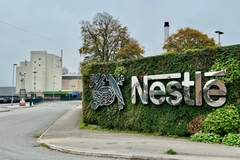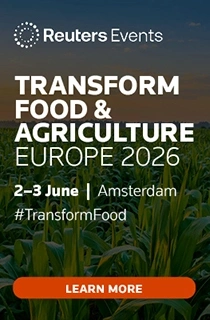
- Industry news
Industry news
- Category news
Category news
- Reports
- Key trends
- Multimedia
- Journal
- Events
- Suppliers
- Home
- Industry news
Industry news
- Category news
Category news
- Reports
- Key trends
- Multimedia
- Events
- Suppliers
Tesco Follows Morrison’s by Launching Food Waste Initiative

14 Mar 2016 ---. Tesco is rolling out a major charitable initiative which aims to give millions of surplus meals to charity by the end of 2017 and reduce food waste. Named, Community Food Connection, the initiative has already been running for six months across 14 Tesco stores and the retail giant said it has generated 22 tons of food – the equivalent to 50,000 meals.
Food waste is a big issue for supermarkets which have been forced to defend their efforts to tackle the UK’s food waste crisis.
A recent study found that Britain wastes more food than any other European country, around 15 million tons wasted each year.
The issue has become increasingly political, in light of the growing number of people forced to use food banks to survive.

The Tesco initiative follows rival Morrison’s which announced a similar food wastage initiative last year.
Tesco said it is has a “farm to fork” commitment to tackle food water from its supplier, through its stores, and customer homes.
The initiative is now been rolled out in 15 cities and regions across the UK including Manchester, Birmingham and Southampton.
The retail giant said it will reach all large Tesco stores- over 800-by the end of 2016, with all stores signed up to the initiative by the end of 2017.
Once fully running, Tesco is hoping that other retailers will be able to use Community Food Connection, which works with open source platform FareShare FoodCloud to help store the data collected.
According to Tesco, it threw away 55,400 tons of food at Tesco stores and distribution centres in the UK last year, of which around 33,000 tons could otherwise have been eaten- which is the equivalent to around 70,000 meals.
Tesco chief executive Dave Lewis said: “We believe no food that could be eaten should be wasted – that’s why we have committed that no surplus food should go to waste from our stores.”
“We know it’s an ussie our customers really care about, and where there’s surplus food at Tesco, we’re committed to donating it to local charities so we can help feed people in need.”
“But we know the challenge is bigger than this and that’s way we’ve made a farm to fork commitment to reduce food waste upstream with our suppliers and in our own operations and downstream in our customers’ own homes.”
By John Reynolds









